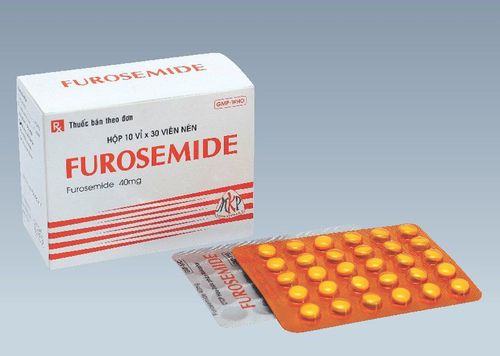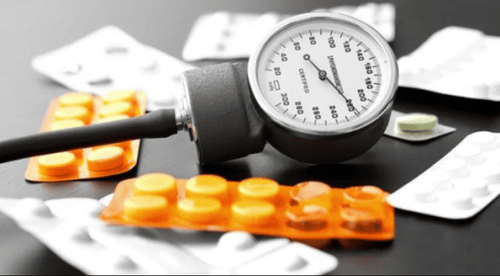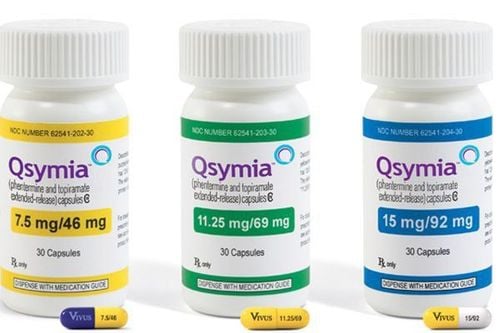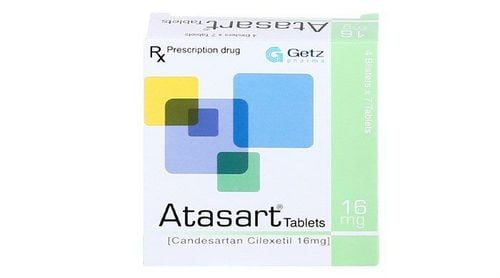This is an automatically translated article.
The article was professionally consulted with Doctor Cardiologist - Department of Medical Examination & Internal Medicine - Vinmec Hai Phong International General Hospital.
Using medication to lower blood pressure is a common practice for people with high blood pressure. This helps to reduce the risk of dangerous complications for the heart, kidneys, brain... However, how much high blood pressure is the most appropriate medication to take?
1. How dangerous is high blood pressure?
High blood pressure is a dangerous condition that can affect your health and cause serious complications. If high blood pressure is not intervened in time, it can cause many consequences such as:
1.1 Affects the heart High blood pressure causes the patient's heart to work too hard, the higher the blood pressure, the more the heart muscle has to work. More pumping, more effort. If this condition lasts for a long time, the heart will gradually dilate and cause arrhythmia, heart failure, heart attack, sudden death,...
1.2 Causes brain complications Let the brain have Normal functioning body requires oxygen-rich blood to be pumped by the heart. High blood pressure reduces blood flow to the brain, causing ischemic attacks. In case if the blood flow is significantly blocked, it can cause brain cell death, stroke.
1.3 Damaged arteries People with high blood pressure tend to have damaged arteries, less elastic and stiffer. The cause is determined to be due to fat in the blood that accumulates in the arteries, gradually reducing blood flow, causing blockages, high blood pressure, heart attacks and strokes.
In addition to the above serious effects, the patient also has other complications of the heart, brain... caused by high blood pressure. Therefore, when the patient has high blood pressure, it is necessary to use medicine to quickly return the blood pressure to normal levels.
2. How high blood pressure must take medicine?
How high blood pressure should take medicine is a common question of patients and their families. In fact, not everyone with high blood pressure is advised to take medication. In some cases, just changing the diet and lifestyle will help keep blood pressure stable. On the contrary, some subjects need to use antihypertensive drugs such as:
Systolic blood pressure from 130 - 139 mmHg and diastolic blood pressure from 80 - 89 mmHg: In fact, this is the pre-hypertensive stage, this time people Patients are advised to mainly change their diet, activities, and exercise during the day in combination with medication, but not much. Drugs are only considered when the patient is at risk of health complications. Systolic blood pressure above 140 mmHg or diastolic blood pressure above 90 mmHg: In this case, if the patient has additional factors such as: overweight, diabetes, the doctor will prescribe the patient to take medicine besides changing the blood pressure. change mode of life. If there is no underlying medical condition and the risk of complications is low, the drug should not be used or used in small doses. Systolic blood pressure over 160mmHg or diastolic blood pressure over 100mmHg: In this case, the patient is almost required to use blood pressure medication. Medicines for high blood pressure should be consulted by a specialist.
3. Medications commonly prescribed to treat high blood pressure
Currently, there are many different classes of drugs prescribed to treat high blood pressure, some of which are most often prescribed by doctors: calcium channel blockers, diuretics, ACE inhibitors, drugs. angiotensin II receptor blocker (ARB), alpha blockers, beta blockers, alpha-beta blockers, aldosterone antagonists...
The use of antihypertensive drugs must be prescribed by a specialist. Because if you self-medicate, there are many potential health risks. Besides, when prescribed, your doctor will regularly monitor your health status, if taking the drug in combination with lifestyle changes but blood pressure does not decrease, the doctor may switch to another more optimal direction. In addition, when taking medication to treat blood pressure, patients should note a few issues as follows: Take medication as indicated: Take medication as indicated, including dosage, time of day, time to finish prescription... Monitoring blood pressure at home: During the course of medication, patients need to regularly monitor their blood pressure daily. This is the basis to help doctors assess whether the use of drugs in patients is effective or not. It is best to write down your blood pressure readings on paper to avoid forgetting. Combined with a moderate lifestyle: During the course of taking the drug, the patient should have a scientific diet and a healthy lifestyle. Avoid staying up late, exercise that. Do not eat fried, fried, salty foods, say no to soft drinks or alcoholic drinks... When you have a healthy diet, the process of using medicine will achieve better results. During the treatment of antihypertensive drugs, patients may experience some side effects such as cough, diarrhea, constipation, dizziness, headache, nausea, itchy skin, fatigue... This reaction will disappear after taking the drug, so don't worry too much. However, if this condition persists, affecting the patient's health and activities, it is necessary to discuss further with the doctor.
=> Advice from Doctor Cardiologist - Department of Medical Examination & Internal Medicine - Vinmec Hai Phong International General Hospital : High blood pressure if not treated will cause heart failure complications , arrhythmia, vascular damage, brain stroke...
Currently, Vinmec International Hospital has blood pressure examination services to help diagnose hypertension/hypotension (if any), come up with an appropriate treatment plan; evaluate cardiovascular risk factors and some comorbidities of predicting future cardiovascular events, thereby proposing prevention strategies.
Please dial HOTLINE for more information or register for an appointment HERE. Download MyVinmec app to make appointments faster and to manage your bookings easily.













